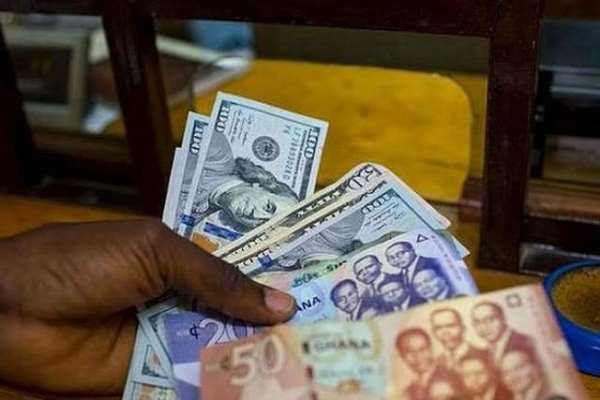The Ghanaian cedi continued its downward trajectory against major international currencies, most notably the US dollar, on Monday, August 25, 2025. This depreciation reflects a persistent trend in the cedi’s value, raising concerns about its stability and the potential impact on the Ghanaian economy. Data from Cedirates.com, a prominent platform tracking currency fluctuations in Ghana, paints a picture of a weakening cedi across various exchange platforms, including forex bureaus, the Bank of Ghana interbank market, and money transfer services. This multi-faceted decline underscores the breadth of the currency’s challenges.
The most pronounced depreciation was observed against the US dollar. At forex bureaus, widely accessed by individuals and businesses for currency exchange, the cedi traded at an average buying rate of GHS11.80 and a selling rate of GHS12.10 per dollar. This represents a significant premium compared to the rates offered on the Bank of Ghana’s interbank market, which recorded a buying rate of GHS10.89 and a selling rate of GHS10.91. The discrepancy between these rates highlights the varying dynamics influencing currency exchange in different segments of the market. Forex bureaus, often facing higher operational costs and risks, typically offer less favorable rates compared to the regulated interbank market.
The cedi also faced depreciation against other major currencies, including the British pound and the euro. Against the pound, forex bureaus offered average buying and selling rates of GHS14.52 and GHS15.14, respectively. The Bank of Ghana’s interbank rate for the pound stood at GHS14.77, again reflecting the generally lower rates available through this official channel. Similarly, the euro traded at average buying and selling rates of GHS12.57 and GHS13.10 at forex bureaus, while the interbank rate was GHS12.79. These trends suggest a broader weakening of the cedi against a basket of major currencies, not just the US dollar.
Money transfer services, increasingly popular for remittances and international transactions, presented a slightly different picture. Companies like LemFi and Afriex, specializing in cross-border payments, offered competitive rates for remittances from the US or UK to Ghana. For dollar remittances, LemFi offered a rate of GHS10.90, while Afriex offered a slightly more favorable rate of GHS10.57. For pound remittances, LemFi’s rate was GHS14.70, and Afriex’s was GHS14.80. Euro remittances saw LemFi offering GHS12.80 and Afriex GHS12.72. These rates, generally more competitive than forex bureau rates, reflect the efficiencies and lower overhead costs often associated with digital money transfer platforms.
Digital subscription payments for services like Netflix, Spotify, and Apple Music, often processed through international payment networks like Visa and Mastercard, also reflected the prevailing exchange rate trends. The exchange rate for these transactions stood at GHS11.82 for both Visa and Mastercard, aligning closely with the rates observed at forex bureaus for dollar transactions. This indicates that these digital payments are subject to the broader market forces influencing the cedi’s value.
The overall depreciation of the cedi has significant implications for the Ghanaian economy. A weaker cedi can lead to increased import costs, potentially driving up inflation and impacting the affordability of essential goods and services. It can also affect businesses reliant on imported inputs, squeezing profit margins and potentially impacting investment decisions. Furthermore, a depreciating currency can erode the value of savings and investments denominated in cedi, impacting consumer confidence and spending. Monitoring these currency fluctuations and understanding their underlying drivers is crucial for policymakers and businesses alike in navigating the evolving economic landscape.














